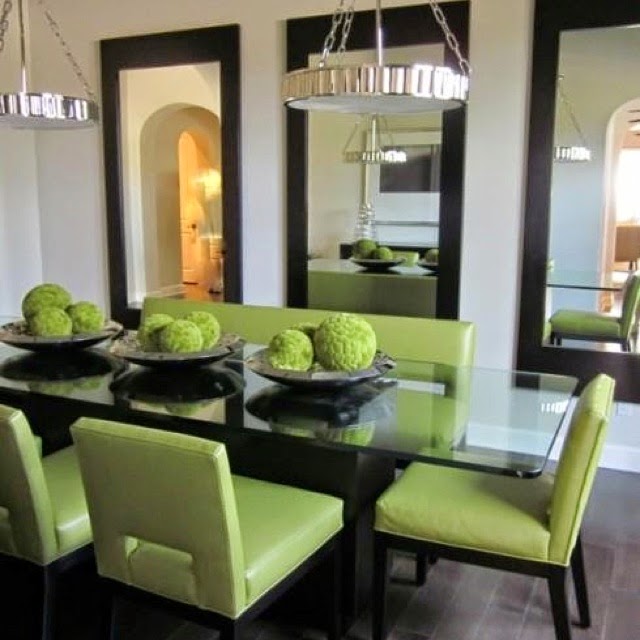1. To reflect light
This is one great space for a number of reasons, but the mirrors make it in my opinion. Not only do they break up a dark wall and provide height to match the window, they reflect light in what might otherwise be a blah room.
2. To create a window in a windowless room
There are often sections of a space that are dark and windowless. Mirrors can give the illusion of a window and light without having to make architectural changes. In both rooms above the mirrors also add dramatic focal points.
3. Add drama to an open space
This high ceilinged space demands a large scale treatment. This mirror fills the bill when it comes to matching the scale of the space. The choice of a lucite table ensures that the lines of the mirror remain dominant.
4. To replace art
Sometimes a mirror when used well can replace art over a bed or mantle. In this space the sculptural light is reflected in the mirror, providing an interesting visual focus.
5. To highlight art/collections
6. To create impact
One of the best ways to create impact is through repetition. Imagine the scene above if you just has three or four mirrors.
7. To balance large windows
I love how the mirror is large scale, soft with its rounded top, and the height relates well to the window. The gold relates to the lamps and the table which also mimics the rounded top of the mirror.
I am definitely interested in any solution that helps balance heights/scale in a room. One of the best things about this mirror treatment is how it relates to the window next to it and the furniture in the space. You read the fireplace and mirrors as one unit. The fireplace alone is small and delicate. Keeping the mirror frame lighter and gold helps it to relate to the other furnishings in the space.
Seven reasons why you should have a mirror in your home apart from the obvious. Who knew? Are you a mirror lover? I'm sad to say my mirror choices are purely functional. What about yours?
Please find links to photos on my Pinterest board Mirrors.











.jpg)










